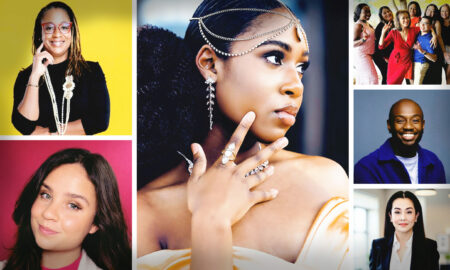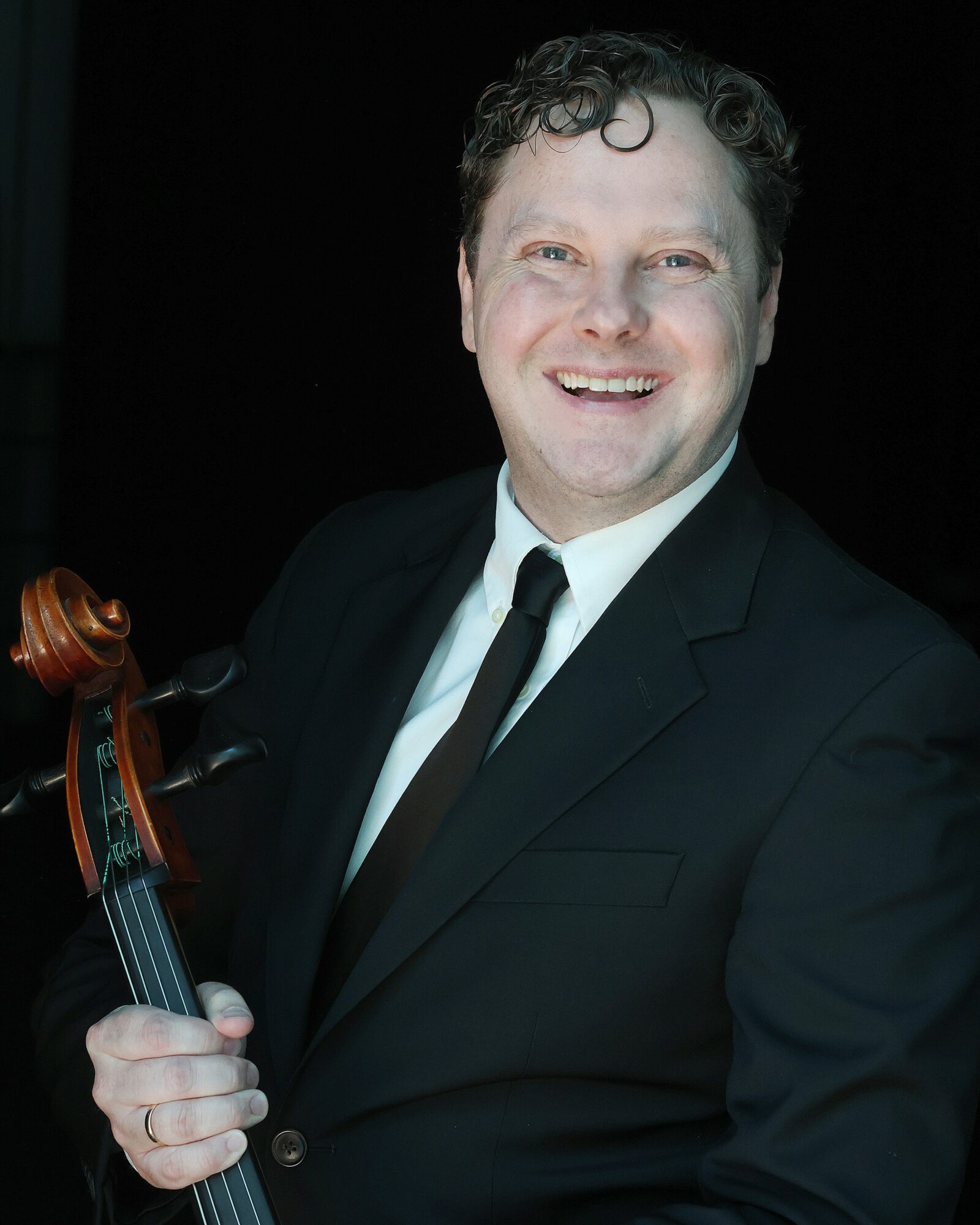

Patrick Moore shared their story and experiences with us recently and you can find our conversation below.
Hi Patrick , thank you for taking the time to reflect back on your journey with us. I think our readers are in for a real treat. There is so much we can all learn from each other and so thank you again for opening up with us. Let’s get into it: What’s more important to you—intelligence, energy, or integrity?
For me, integrity matters most because it is the foundation of everything else. Intelligence and energy can take you far, but without honesty, loyalty, and a strong moral compass, those qualities don’t mean much. I believe the most important thing in life is the trust we build with others and the relationships we nurture along the way. People need to know they can count on you, not just when it’s easy but especially when it’s difficult. Loyalty, kindness, and doing the right thing even when no one is watching are what truly define a person’s character. At the end of the day, it’s not about how clever or driven you were, but about how deeply you cared and how steadfast you remained in the bonds you made.
Can you briefly introduce yourself and share what makes you or your brand unique?
I’m Patrick Moore, a cellist and teacher living in Houston. At my core, my work is about bringing more beauty into the world through music and helping cultivate the next generation of musicians. Performing lets me share something meaningful with audiences in the moment, while teaching allows me to pass along what I’ve learned and invest in the future of the art form. Those two parts of my life balance and feed each other.
With Axiom Quartet, the group I co-founded over a decade ago, we’ve taken on some exciting projects that combine tradition with fresh ideas. One highlight has been Open Source, a work written for us by composer Karl Blench and librettist Jacqui Sutton. It was commissioned by the First Congregational Church of Houston as a love letter to its founding and mission of inclusion, and it explores themes of openness, healing, and community. That piece has really connected with audiences, and we’re proud it even received national recognition from the American Prize.
On my solo side, I’m preparing to release an album called Four Generations. It traces the line of mentorship in composition from Darius Milhaud all the way through to Karl Blench, showing how music gets passed down, transformed, and kept alive across time. For me, that project reflects not only the importance of legacy but also the relationships and guidance that shape us as artists. Whether with the quartet, my students, or my solo work, I see music as both a gift we inherit and one we’re responsible for carrying forward.
Appreciate your sharing that. Let’s talk about your life, growing up and some of topics and learnings around that. Who saw you clearly before you could see yourself?
When I think about who saw me clearly before I could see myself, I immediately think of my music teachers. Each one had a vision that shaped me into the musician and person I am today. The classical music field is unusual in that close mentorship is not just part of the process, it is the very heart of how we learn our craft. I am grateful to every teacher I’ve had, and though there isn’t enough space to do them full justice here, I want to share what each of them gave me.
Shari Allison taught me how to love and trust myself. She lit the first spark in me right from the start, and I carry so many fond memories of her care and attention, both as a teacher and as someone who believed in me as a person. Karen Walker McAfee, my high school orchestra director, gave me a model of warmth and dedication I hear in my own teaching voice to this day. Guest clinicians would often say she was the best orchestra teacher in the world when they visited my orchestra in high school, and I now know it to still be true as I work as a teacher today.
Jeffrey Noel Lastrapes was one of the first teachers who truly pushed me toward becoming the cellist I am now. His lessons left me with wisdom I still recall with absolute clarity, and I’m proud to pass that on to my own students now. Barbara Haffner taught me during one of the most difficult times in my life. When I was most lost, she saw something in me that I didn’t yet see in myself, and she gave me the discipline that has anchored me ever since. Lynn Harrell was one of the great masters of the cello, and I feel incredibly fortunate to have worked with him. His example of artistic integrity is something I will carry with me and remain deeply grateful for. Chris French taught me both practicality and artistry: he taught me to become friends with my metronome and, at the same time, helped me find clarity in my musical expression. Alice Ann O’Neill challenged me to become a better teacher by showing me how to guide students toward finding joy through beauty, and above all, through love.
I owe so much to these extraordinary people. Their vision for me was often clearer than my own, and their lessons continue to live on not only in my playing but in the way I pass music along to my students.
Is there something you miss that no one else knows about?
I miss the kind of community gatherings that existed before recorded technology and phones. I miss people singing freely, without fear of judgment, and the simple joy of making music together. I miss going to dances with my grandmother on Saturday nights, feeling the energy of people moving and laughing together. I miss pubs and halls filled with singing, dancing, and celebration late into the night. There was a different kind of intimacy then, a sense of connection that comes from creating something alive in the moment.
Music was profoundly immediate in those days. If you wanted it, you had to make it yourself, and in that act, it became something deeply human and shared. Listening was not passive, and the experience of live music carried weight, emotion, and vulnerability. That freedom to participate, to contribute to a collective sound without fear, is something I still long for and try to cultivate in the lessons and performances I give today.
I think our readers would appreciate hearing more about your values and what you think matters in life and career, etc. So our next question is along those lines. What’s a cultural value you protect at all costs?
The cultural value I protect at all costs is the integrity of artistry. For me, music is not a product to be consumed quickly but a language that carries history, humanity, and truth. When I teach or perform, I feel a responsibility to honor the music fully, not to take shortcuts or water it down for convenience or trend. That integrity is what gives music its power to reach across time, to move hearts, and to reflect the resilience of the human spirit.
Protecting artistry also means protecting the community that surrounds it. Whether I am working with a student one-on-one, rehearsing with colleagues, or performing for an audience, I hold to the belief that respect, patience, and genuine collaboration must be at the center. In a world that often prizes speed and efficiency, I see real value in slowing down, listening carefully, and cultivating depth. To me, that is how artistry flourishes, and it is why I guard it so carefully.
Thank you so much for all of your openness so far. Maybe we can close with a future oriented question. When have you had to bet the company?
This season, I truly bet the company on our Unbroken Shostakovich cycle. Programming seven concerts of Shostakovich quartets in chronological order is an ambitious undertaking, both artistically and logistically. The music is emotionally intense, technically demanding, and thematically profound, and presenting it as a full season requires total commitment from the quartet and from our audience. It is a risk because it challenges listeners to engage deeply with difficult repertoire and challenges the ensemble to maintain focus, cohesion, and expressive honesty across an entire cycle.
Axiom chose to take that risk because we believe in the power of these works to move and transform audiences. Each concert tells a part of a larger story, one of resilience, courage, and the human spirit enduring under pressure. By dedicating ourselves fully to this project, we are not only exploring Shostakovich’s genius but also asking our community to meet us in that space of emotional and musical intensity. It is a risk worth taking because the potential reward, creating a shared, unforgettable experience that resonates long after the final note, is greater than the comfort of safer programming.
Contact Info:
- Other: www.moorecello.com
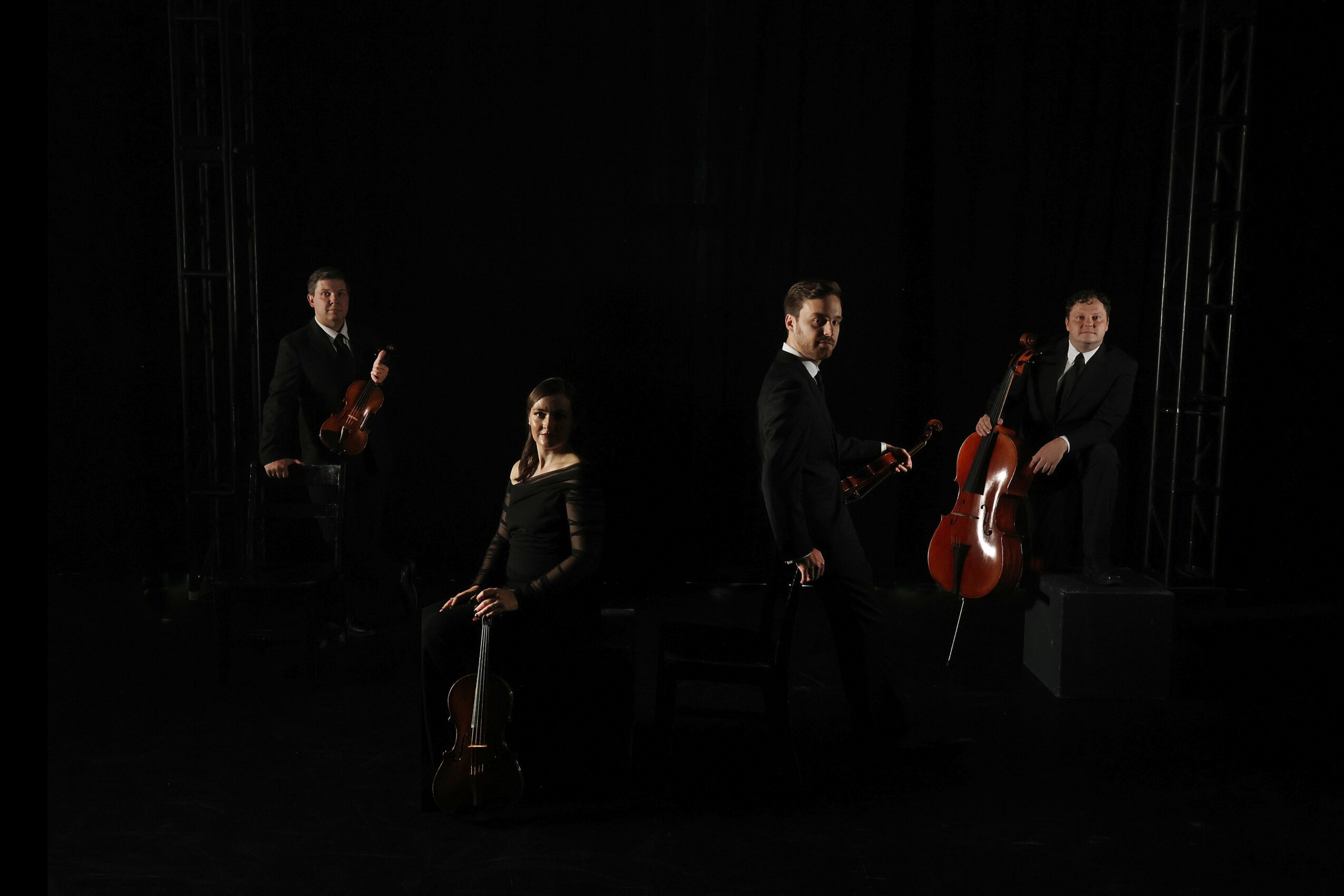
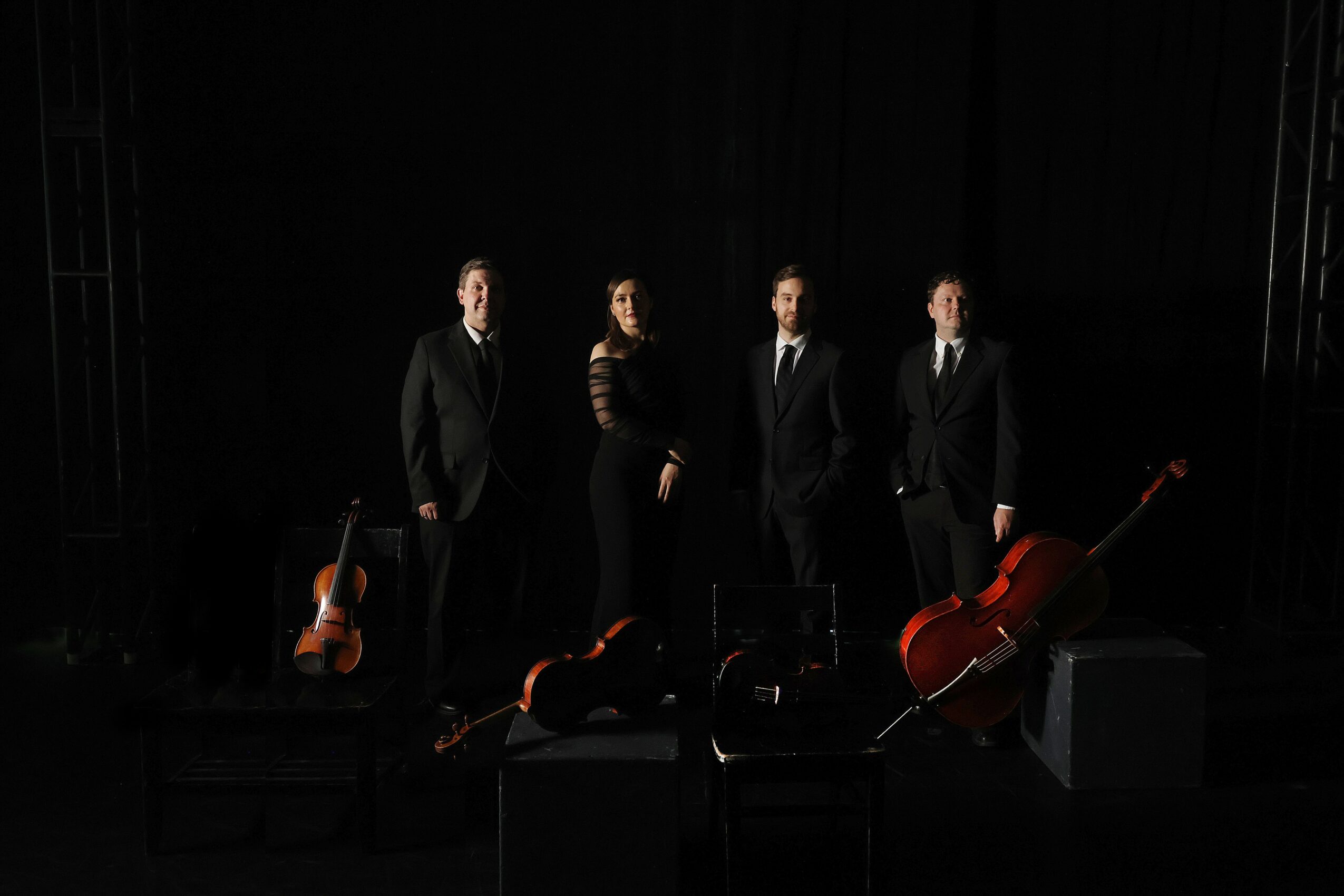
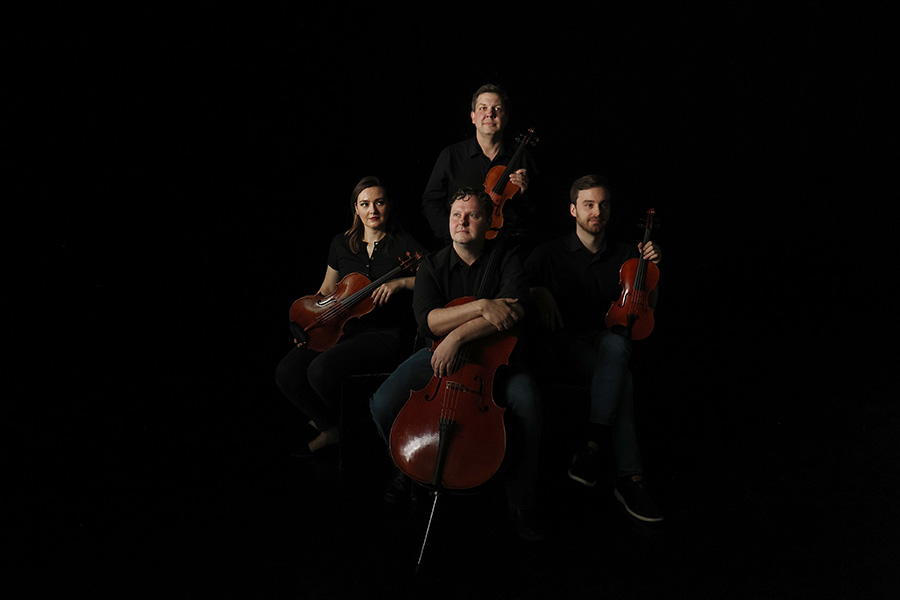
Image Credits
Pin Lim

